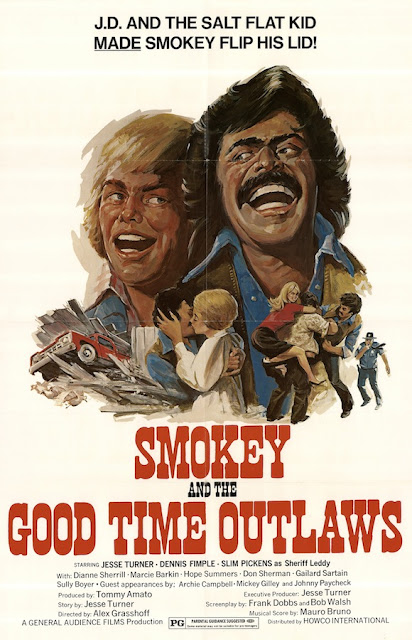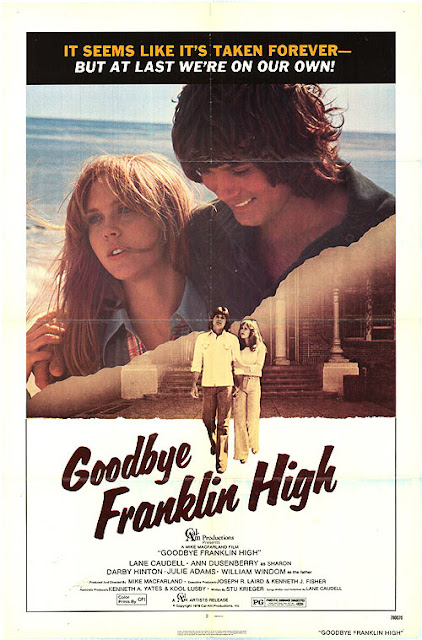By the late ’70s, actor Michael Christian had spent a decade struggling to capitalize on the minor notoriety he gained from a recurring Peyton Place role—hence this would-be star vehicle, which the fading actor wrote and produced. Alas, the story he contrived was never likely to attain mainstream acceptance. You see, Christian cast himself as a Hollywood gigolo who freaks out after getting abused by a sadistic john, then flees to the countryside, where he befriends a kindly grandfather and a verging-on-womanhood teenager. The first half-hour of the movie is arrestingly sleazy, with disco music throbbing over montages filled with full-frontal nudity; the middle of the film is as gentle as a Disney picture; and the climax, featuring Christian’s character getting chased by trigger-happy cops, is overwrought B-movie pulp. The differing tonalities of the movie’s three sections clash so harshly that Hard Knocks—which has also been distributed as Hollywood Knight and Mid-Knight Rider—is a thoroughly confusing cinematic experience.
When viewers meet him, Guy (Christian) is caught in a dangerous rut, turning tricks primarily for older female clients but occasionally getting beaten by men who don’t like how he earns his money. When an encounter with rich clients in Beverly Hills turns ugly, Guy loses his cool and beats one of the clients nearly to death, then skips town rather than face consequences. The fugitive gigolo finds shelter on a farm occupied by Jed (Keenan Wynn) and Jed’s granddaughter, Chris (Donna Wilkes). A kind of surrogate family takes shape until a bar brawl lands Guy in jail—which, in turn, leads the local sheriff to connect Guy with police reports about the Beverly Hills incident.
Had a better writer polished the raw materials of Christian’s lurid storyline, something coherent might have resulted—because despite the overall clumsiness of this picture’s execution, there’s an interesting core pertaining to the malaise of a character who can’t decide whether he’s cheapened his soul beyond redemption. It’s also a bummer to report that Hard Knocks gets worse as it progresses. The last section is predicated on sketchy character motivations, and the middle section gets so dull that at one point the film stops dead for a “comical” montage of Christian and Wynn riding a sidecar motorcycle. Still, what makes Hard Knocks impossible to completely dismiss is that rough first section, released months before the immeasurably better American Gigolo (1980). The sex-work stretch of the picture is dark, grimy, and sad, powered by affectless voiceover and pulsing musical rhythms. As rendered by director/cinematographer David Worth, this stuff isn’t good filmmaking, per se, but it’s vividly grungy.
Hard Knocks: FUNKY





